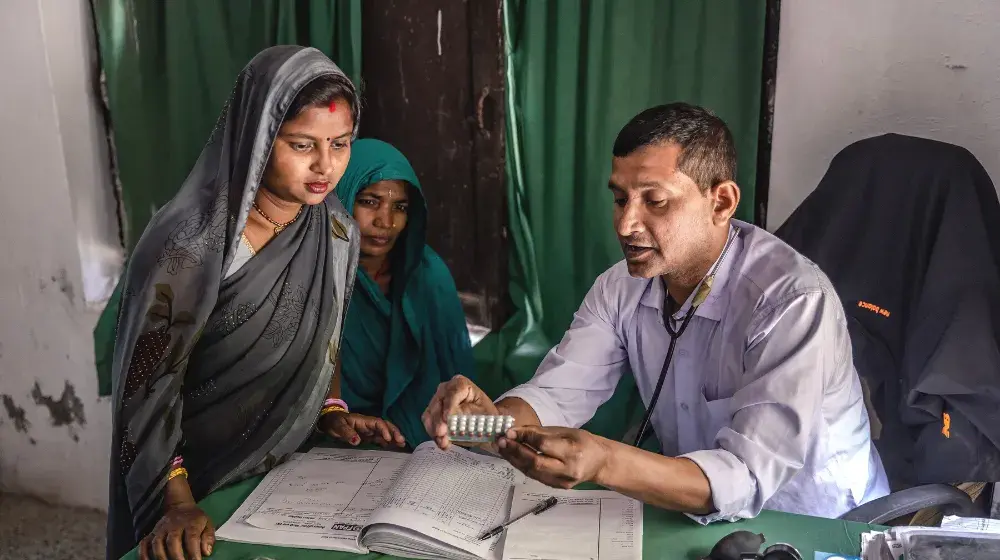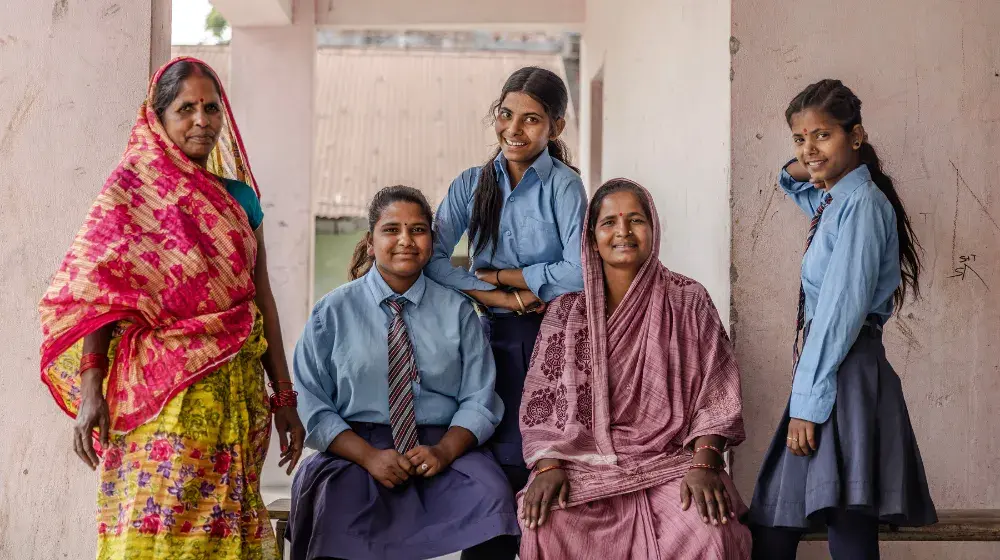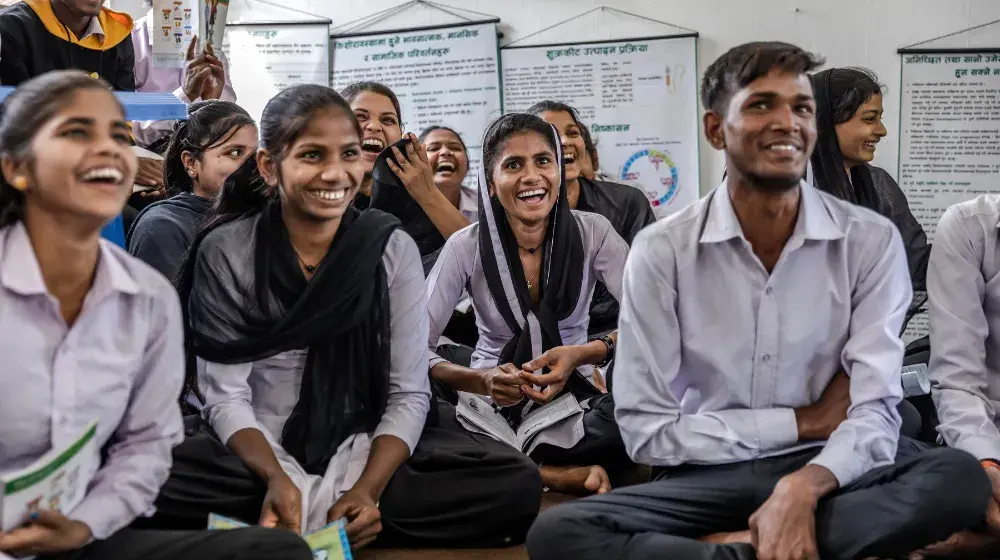KAPILVASTU — When she was 14, Srijana Kurmi convinced her parents, who had started looking into finding a husband for her, to wait. She stayed in school until the 10th grade. A year ago, aged 20, she agreed to get married, and has since decided to delay having children.
“I talked about it with my husband,” she says. She draws her headscarf tighter across her face. “We said we would wait three or four years.”
In Kapilvastu, these are unusual decisions. Nepal has one of the highest rates of child marriage in South Asia—two in every five adolescent girls in Nepal are already married—and the practice is especially common in Nepal’s Terai belt.
Here, once married, wives are expected to bear children—preferably sons—straight away. Men whose wives aren’t pregnant within a year are often pressured to remarry. Across Nepal, 17 percent of girls aged 15-19 years are already mothers or pregnant with their first child.
Srijana and her husband know about the services provided in the local health post, which is close to their home. But among married adolescents in Nepal, almost 35 percent say they would use family planning services if it were available to them.
Reaching adolescents who are vulnerable to early marriage and early pregnancy is a priority for UNFPA in its country programme in support of the Government of Nepal. With funding from the Department for International Development (DFID), adolescent girls – and their parents and communities - are educated about the impacts of early childbearing. Additionally, access to family planning services is enhanced by ensuring that health centres are adolescent-friendly, and provide accurate, non-judgmental information and support to anyone who needs it, regardless of age and marital status.
Srijana is a beneficiary of the Social and Financial Skills Package program, or Rupantaran—meaning “transformation” in Nepali—in which adolescent girls are taught life skills over the course of a year. One of the modules includes lessons on the danger of early childbirth, which was the argument that convinced her parents to postpone her marriage.
“I tell them (adolescent girls) that if we give birth before we are ready, it can harm us. Our bodies won’t have developed enough,” she says.
The module also teaches the importance of reproductive health, and the facilities provided by government health posts. The hope, says Chitra Mahato, the UNFPA District Officer in Kapilvastu, is that if girls use the services early, to address menstrual issues, for example, they will be comfortable using family planning services later should they want to.
In Srijana’s hometown, 28 girls are part of her former Rupantaran group. One of them, Poonam Kumari Harijan, 16, says that her friends go to the clinic for regular checkups “with our friends, with our mothers.”
Sometimes, Rupantaran’s lessons have been useful for others in the community. Last year, a neighbor with three children to whom Poonam had introduced the idea of family planning ended up getting an implant.
But using the services can be intimidating. Sheshkala Pandey, one of the teachers in the Rupantaran group, says that until recently, adolescents who came in were examined in the same room as other patients, and by male doctors, which made some of the girls uncomfortable.
When a health center meets certain criteria, the government gives it an “adolescent friendly” certification. Since 2016, UNFPA has provided funds and technical support to help government-run health centers gain this status. To date, 69 centers have been certified. In addition, UNFPA Supplies provides family planning commodities to the government, which ultimately reaches health facilities at the sub-national level from where services are provided on a regular basis.
Among the requirements is that a center provide alternate ways to get information—such as a “book corner” where adolescents can read about reproductive health and family planning on their own. Another is that a center set aside a dedicated examination room for adolescents, to ensure their privacy.
Staff are trained to take charge of adolescents’ comforts, for instance by asking them if they want to talk alone. But the most important factor, says Sita Poudel Belbase, a nurse at the facility, is assuring them of confidentiality—adolescents are concerned that others might know that they visited.
“If there’s no anonymity,” she says, “they might not come at all.”
But many can't overcome the cultural norms that compel them to marry young. And once married, even when contraceptives are available and girls are aware of risks, it’s challenging to delay pregnancy.
Kabita Pasi, 20, a former Rupantaran participant in nearby Tilaraukot, says she got married two years ago, at the age of 18, and moved to her husband’s home in Rudrapur, India. It was expected that she would have a child soon.
She had learned about family planning in her Rupantaran classes and knew contraceptives were available where she lived. But when she told her husband’s parents about the dangers of having children early, they were unrelenting.
“He didn't want a baby either,” she says of her husband. “But my father- and mother-in-law wanted one right away, and said we couldn’t use birth control.” Her daughter is now a year old.
All in all, Srijana, sitting at her home in Bithuwa, realizes her case is different from that of many in similar situations.
Her husband, 24, having completed the 12th grade, is the most educated in the household, and handles the family’s finances. He holds authority. As a result, his parents haven't questioned the couple’s decision to delay having a child.
Her case highlights that simply educating the girls isn’t enough. So many decisions are made on her behalf that addressing the rates of child marriage and pregnancy requires others be convinced too.
Her husband emerges from the door, heading to work. How does he feel about family planning education? He pauses. “I think this is something we need.”
“I think uneducated people are against this,” he says. “This is not a problem for educated people.”




